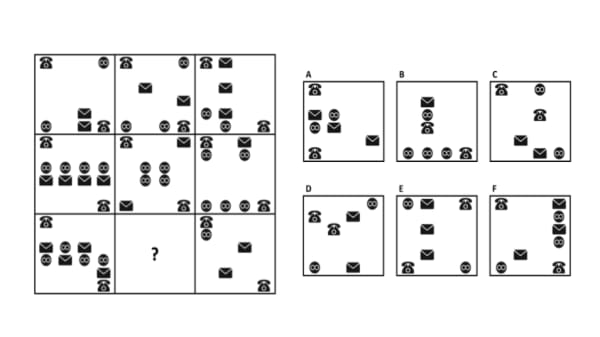About Hill Dickinson
Hill Dickinson is an international law firm with headquarters in Liverpool. Alongside the Liverpool office, Hill Dickinson has locations in Manchester, Leeds, London, Singapore, Greece, Monaco and Hong Kong.
Established in 1810, Hill Dickinson has been involved in a number of famous cases, including representing the White Star Line following the sinking of the RMS Titanic.
Today, with more than 200 years of experience in corporate, health, construction, real estate and marine law, Hill Dickinson is an inclusive and diverse firm that employs both experienced professionals and graduates across all offices.
Benefits of working at Hill Dickinson
Aside from a competitive salary, the team at Hill Dickinson have several benefits, including:
- Private medical insurance and health insurance
- Travel schemes including season ticket loans
- Flexible pension schemes
- Professional subscriptions
- 25 days of holiday plus Bank Holidays as standard with Christmas shutdown and birthdays off
- Bespoke professional development and leadership training programmes
- Holistic initiatives including complimentary fruit, yoga and mindfulness
- Employee recognition awards and company-wide bonuses
Graduates at Hill Dickinson
The Graduate Programme at Hill Dickinson is a two-year rotational programme that is designed to help new graduates find their feet and get award-winning training. Graduates can choose a specialism early, working in either corporate, health or marine law areas.
Graduates get a salary starting at £26,000 (Northern offices) or £37,000 (London offices) alongside support to complete their Solicitor's Qualifying Examination (SQE) as an apprenticeship if necessary.
To apply for the Graduate Programme at Hill Dickinson, you need to be passionate and motivated, with excellent communication skills and an eye for innovative solutions. All applications are accepted on a rolling basis, and although the minimum criteria is a 2:1 degree and AAB, all applications are considered as a whole, which means that considerations can be made for extenuating circumstances.
Hill Dickinson Application Process
The application process for Hill Dickinson is very straightforward, no matter whether you are applying as an experienced professional or for a training contract. However, the steps for each entry method are slightly different.
Hill Dickinson Online Application
The first step is an online application.
For experienced professionals, all roles are advertised on the careers page of the Hill Dickinson website. You can search the job portal by job area, location, and role. To apply for a suitable job, you will need to create a profile and provide contact information and personal details, as well as upload a CV and cover letter.
The job description includes all the information you need to ensure that you know what the role entails, and what the criteria are to apply. You will find essential and desirable skills as well as experience and qualifications listed here, and you should use this to create a bespoke CV and covering letter that highlights your proficiency and suitability for the role.
The Graduate Programme recruitment process begins with the Apply4Law application system, and all communication regarding your application will be found here in the dashboard.
Hill Dickinson Watson Glaser Critical Thinking Test
This assessment is used for graduates who are looking for a training contract, and it is a psychometric test that is used in the recruitment process for many law firms in the UK.
The Watson Glaser Critical Thinking Test is an online assessment that has 40 questions separated into five sections, designed to test candidates on their critical thinking, problem solving and understanding of arguments.
Each section of the test has a different focus.
The first section looks at your Assessment of Inferences. You will be provided with a passage of information, and you will need to label the following inferences with 'true', 'probably true', 'insufficient data', 'probably false', or 'false'.
Then is Recognition of Assumptions. Based on a paragraph of information, you need to decide whether the assumptions that follow are made or not made.
Deduction skills will help you decide if the conclusions that follow a paragraph of information follow or not.
Interpretation is the next section, and here you need to decide if the conclusions that follow a passage can be interpreted as true.
The last section, and probably the hardest for most test takers, is the Evaluation of Arguments. In this section, you will need to decide if the arguments that follow a paragraph of information are strong or weak - not whether you agree with them.
The Watson Glaser Critical Thinking Test usually has a 30 minute time limit, and it is a good idea to practice a test beforehand so that you are more familiar with the structure, the layout, and the types of questions that you might face.
Hill Dickinson Video Interview
The video interview should be treated like a physical face-to-face interview in terms of preparation.
One of the most important things that you can do before your interview is to make sure you have done your research. Find out all you can about the work of Hill Dickinson, what famous and interesting cases they have been involved in, and any newsworthy events in the legal industry. You also want to be sure that you have researched the role that you have applied for in detail.
Hill Dickinson interviews tend to be taken by a panel, so it might be worth researching the people on the panel as it is likely that they will include senior members of the management team for the office that you have applied for.
The interview itself will be a combination of motivational questions - like why have you chosen this role, or what do you want to do in the future - and competency-based questions.
The competency questions will be based on the skills and competencies that are needed for the role, and you will need to provide examples from your experience that demonstrate that you have the skills needed. These examples should be concise and detailed, and you can think of ideas beforehand by looking at the list of essential and desired skills before the interview so you can practice giving your answers.
During the video interview, make sure that you are properly dressed and against a neutral background, and be sure to test your microphone and speakers as well as the quality of the webcam picture so that you can be seen and heard by the panel.
Hill Dickinson Assessment Centre
The final stage of the graduate application process is attendance at an assessment centre, although this might happen online depending on the situation.
During the assessment centre, you will take part in a number of projects and exercises, designed to assess your soft skills like communication, presentation, leadership, listening skills and teamwork.
One of the activities you might be asked to complete is a written exercise.
You will be provided with a prompt and some information in the form of a case study. This will be a fictional yet realistic collection of information about a client with a problem that needs to be solved.
To complete this exercise, you will need to read and analyse the information, before providing a concise and clear written report with suggested courses of action, backed up by well-thought-out arguments.
This is a great way for you to show your knowledge and skill in presenting an argument, making a considered decision on the best course of action, and demonstrating that you understand the core values of Hill Dickinson and the way they deal with their clients.
You might also be asked to prepare a presentation on a given topic to an assessor or the rest of the group. You will be provided with all the information you need and will be given a short time to prepare.
Once you have completed the presentation, you will be asked questions, so be prepared to present your arguments and explain your thinking. This exercise will help you demonstrate your communication skills, but also show how well you can think on your feet and operate under pressure, much like you would have to in the workplace.
The assessment centre might include a face-to-face interview, which will follow a similar structure to the video interview.

